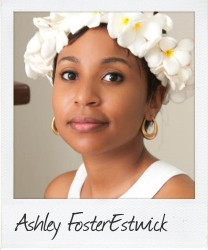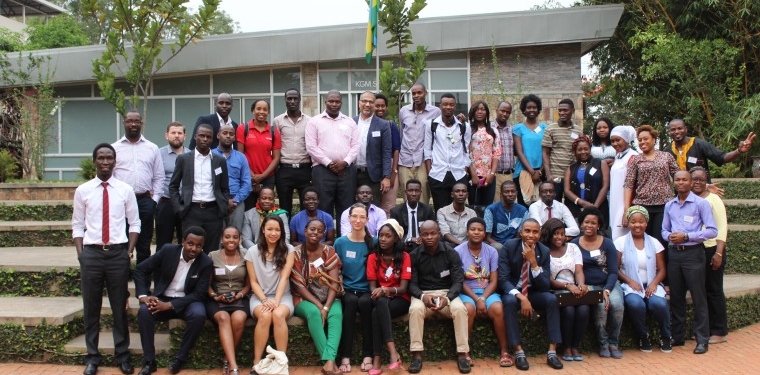“Where are the midwives in Barbados?”
May 5 Midwife services do not have a high profile in her home culture, writes Ashley Foster-Estwick, 25, a Commonwealth Correspondent from Barbados, who takes time on International Day of the Midwife to look at the pros and cons of the profession.
Midwife services do not have a high profile in her home culture, writes Ashley Foster-Estwick, 25, a Commonwealth Correspondent from Barbados, who takes time on International Day of the Midwife to look at the pros and cons of the profession.
I searched today in my local phone directory for a midwife, eager to see a section dedicated to these professionals, but I had no such luck. Had it not been for my access to the internet I believe my search would have been completely futile.
My investigation has led me to only one internet-savvy midwife in Barbados. As a female, aged 25, imaginings of motherhood often surface during the most likely of occasions – a baby shower or the cute baby advertisement on television. I do know that I have never imagined myself in a hospital bed or near a hospital during my birthing experience. I like to think that I am not the lone Barbadian woman who has these sentiments. I applaud our doctors and nurses who assist in bringing life into this world daily but, embracing the birthing experience from the comfort of my home seems to qualm any fears I have.
The midwife, a professional male or female who specialises in pregnancy during three major stages: prenatal, labour and postpartum; is able to work with a mom at home. The midwife also works at a birthing centre and even extends his or her services to sharing best practices for childcare. Employing a midwife is usually what comes to mind when I think of my future birthing experience. Why, then, is finding a midwife leaving me with just one option?
The culture of giving birth is not a singular custom that is globally the same. In the Caribbean, fathers in the delivery room are still relatively rare. There are no birthing centres in Barbados, but with a recent petition for extending paid maternity leave, it seems that the topic of improving women’s transition to motherhood is garnering some much-needed attention. I believe this attention should include accessible information on other birthing practices, especially the advantages and disadvantages of using a midwife.
To assess a midwife’s limitations, it is important to look at the difference between certified nurse-midwives (CNM) and certified midwives (CM) and compare them to doctors and obstetricians. The CNM is a licensed and trained registered nurse who also practices midwifery and has an Associate Degree in Midwifery. The CNM can deliver at homes, birth centres and hospitals, and even write prescriptions. The CM is a professional licensed and trained only in midwifery, cannot write prescriptions and can only deliver out of hospitals.
Comparing these professionals to the ob-gyn, a medical doctor who specialises in pregnancy, can perform surgeries, write prescriptions, work in hospital settings and are the go-to specialists for high-risk pregnancies, his or her four years of medical school and additional years of specialisation in the field has rendered the ob-gyn a more popular choice in Barbados.
For a people who have stuck to the many traditions left before independence, Barbadians are often resistant to change. Insurance providers do not cover births performed out of hospital by independent midwives. A lack of insurance coverage may be a huge deterrent to employ a midwife. Economic woes may increase women’s fear of delivery and it may be a comforting thought that the ob-gyn can perform emergency Caesarean sections while insurance covers the procedure. Yet I cannot help but wonder, for any normal to moderate pregnancy, why women doubt the true potential of their bodies. This leads me to the next point – that midwives support natural birth, empowering the female to use her body holistically.
The option for vaginal birth as a priority should not be a privilege but a right. Barbados is a tropical paradise, whose citizens enjoy a highly recognised passport. Acquiring second citizenship from this island is the reason some women opt to give birth here. Why are our options limited? Barbados has one public hospital and one private hospital. A quick search online reveals that normal baby delivery room rates are $3795 (locals), $4125(CARICOM nationals) and $USD 3795 for extra-regional women at the private facility. Birthing centres are lower in costs, while home births are comparatively no cost. In a hospital, ob-gyns prefer to administer IV medications and make epidurals available. A midwife manages pain differently, using acupuncture techniques and comforting measures before making use of any epidural. It does not hurt that your midwife acts like a caregiver during labour, and may it feel like the midwife is a sister or brother the woman never had.
The ob-gyn is always on call, working around the clock to provide medical services to numerous patients within a year. A midwife offers a more individual experience. Women should choose the option that feels safest for them and their future families. However, in Barbados my options are limited and as such I am calling all midwives.
Reach me on Twitter @MissAshleyFE
Photo credit: heidinger.janos Baby On Board 🙂 via photopin (license)
…………………………………………………………………………………………………………………
About me: I was born and raised on the island of Barbados. While writing has always been an outlet for my creative ideas or thoughts, I never fully pursued it as a career. Instead I have studied business, languages and politics.
I work in administration and management sectors, hoping to use these skills to cross over into the management of public health. My hope is to use this platform as a way to stimulate conversation with my peers and reenergise my writing.
…………………………………………………………………………………………………………………
Opinions expressed in this article are those of the author and do not necessarily represent the views of the Commonwealth Youth Programme. Articles are published in a spirit of dialogue, respect and understanding. If you disagree, why not submit a response?
To learn more about becoming a Commonwealth Correspondent please visit: http://www.yourcommonwealth.org/submit-articles/
…………………………………………………………………………………………………………………
.






